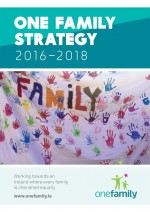Parenting | How to Deal with Leaving Cert Results Disappointment
 Leaving cert results are out on 17 August and parents and teens anxiously await to see what life holds as a result. There are so many expectations around the Leaving Certificate and CAO choices that, as a result, there is great potential for disappointment. What if your teen misses out on their top choice; what if they are disappointed with their grade in a particular subject; what if they don’t get the points they feel they deserved; what if they didn’t do as well as their friends; what if they can see no options for themselves?
Leaving cert results are out on 17 August and parents and teens anxiously await to see what life holds as a result. There are so many expectations around the Leaving Certificate and CAO choices that, as a result, there is great potential for disappointment. What if your teen misses out on their top choice; what if they are disappointed with their grade in a particular subject; what if they don’t get the points they feel they deserved; what if they didn’t do as well as their friends; what if they can see no options for themselves?
How can you support your teen through this tough time? Read our ’10 ways’ to deal with disappointment on results day:
- No matter what happens when they get their results, the key thing to remember is that life goes on. Your child is still your child, you still love them as much as you did the day before. Yes, it may seem obvious but now is a time to focus on this and to remind them.
- If they don’t get what they wished for, you will be heartbroken for them but you must believe that there’s a new plan for them that you can support them to develop and progress with.
- Don’t worry about what others think, does it matter?! Instead, be concerned about what your child needs from you.
- Explore every option with them around colleges and courses. Get advice from a helpline. Look at all the options – there are so many – and have some resources in place.
- Tell your teen that, although getting straight into the course they wanted would have been great, there is always more than one route to any career.
- Tell them that you admire them, and that no matter what, together you will find a way to get to the next stage of their journey. Once your child knows you have faith in them, they will have the confidence to stand tall and tell others about their plan.
- University is not for everyone. Going to a local or smaller college can seem like a less daunting step to take and may be a great option for your teen.
- Celebrate in some way, no matter what the results are. They have gotten this far, a new stage in their life is starting, and the occasion needs to be marked. Good or bad, it is a time to be together.
- Teens will no doubt have plans to go out and celebrate with friends. Agree with them now what is allowed, so you are not caught off guard with their requests or expectations on results day. Be realistic. In a few weeks or months they may move out and will have more freedom, so you need to trust and enable them to make good choices.
- Remember, there are lots of options in life and with support, we all find our way!
This ’10 Ways to’ article is by One Family’s Director of Children & Parenting Services, Geraldine Kelly, as part of our weekly ’10 Ways to’ series of parenting tips. You can read the full series here.
Find out more about our parenting skills programmes and parent supports. For support and information on these or any related topics, call askonefamily on lo-call 1890 66
22 12 or on 01 662 9212.

 We are happy to announce that enrolment is now open for the Options part-time programmes run by One Family in co-operation with Ballsbridge College of Further Education.
We are happy to announce that enrolment is now open for the Options part-time programmes run by One Family in co-operation with Ballsbridge College of Further Education.



